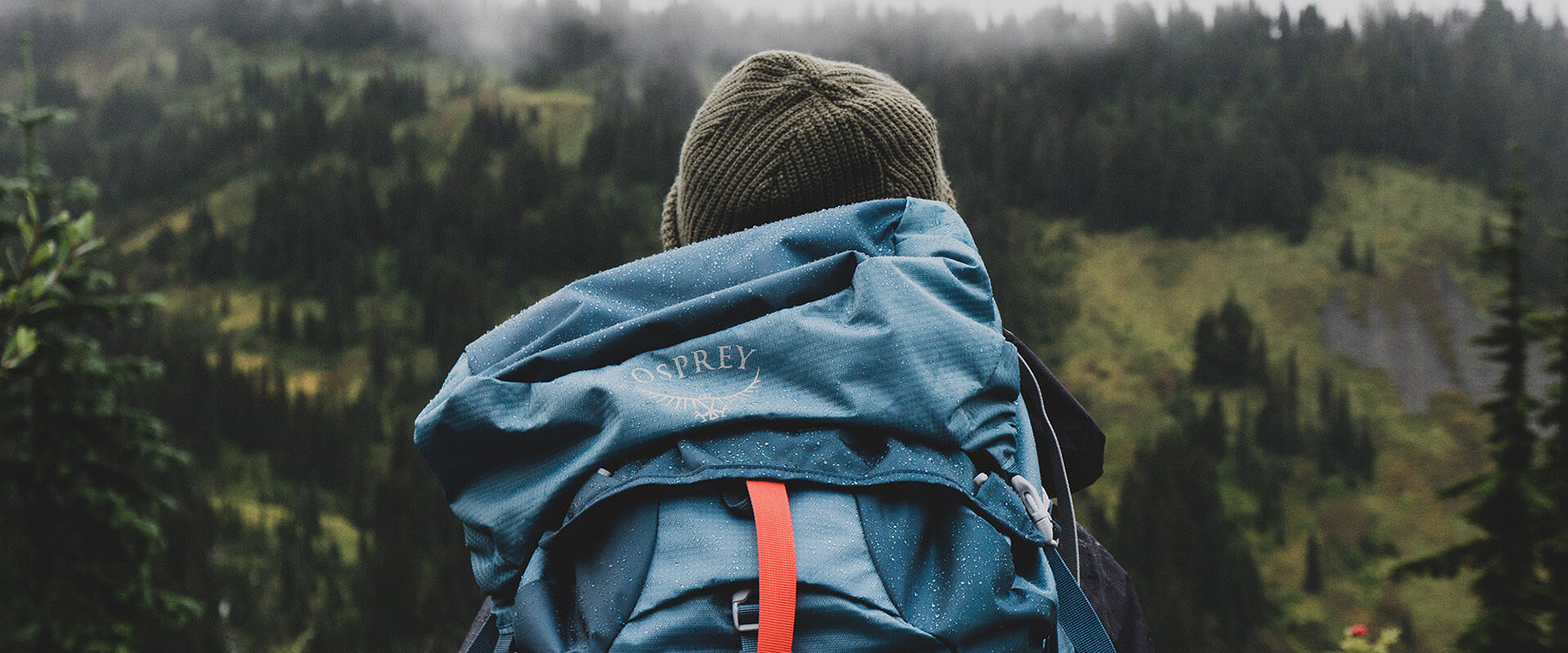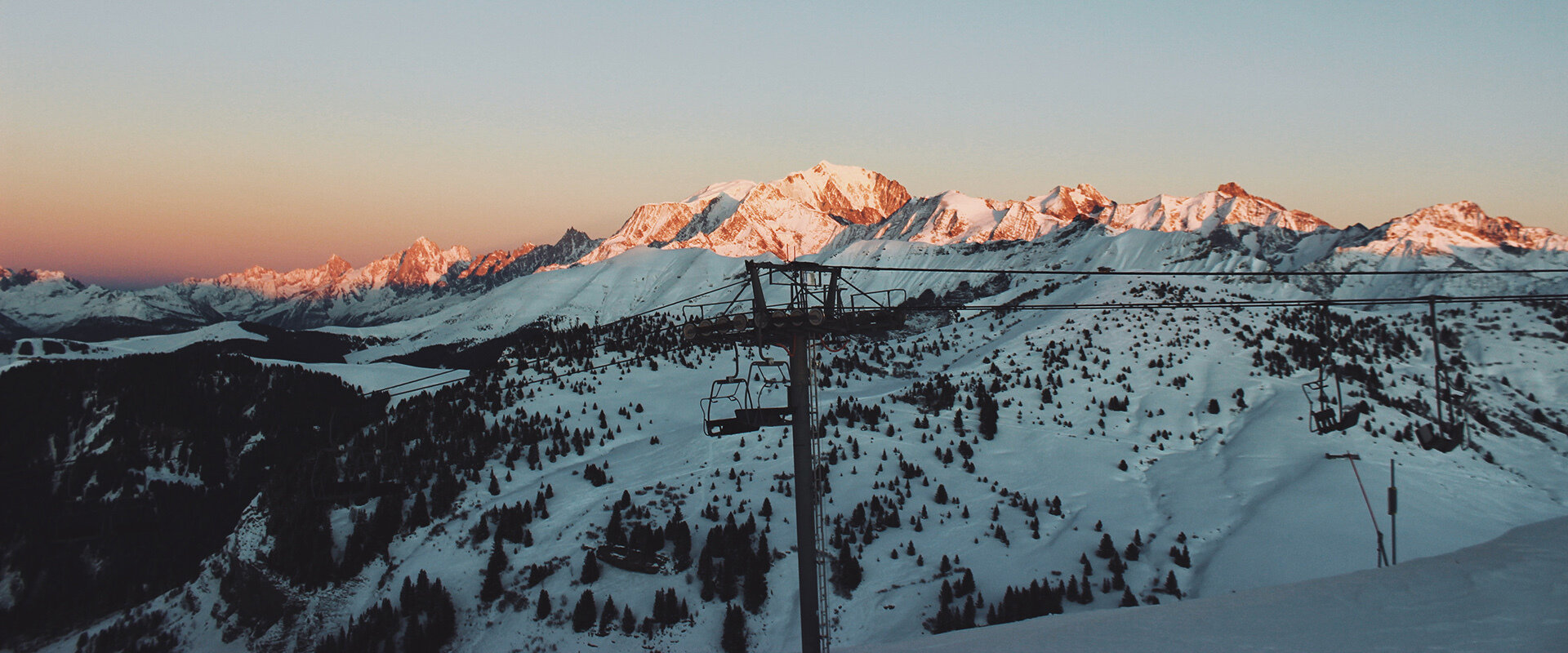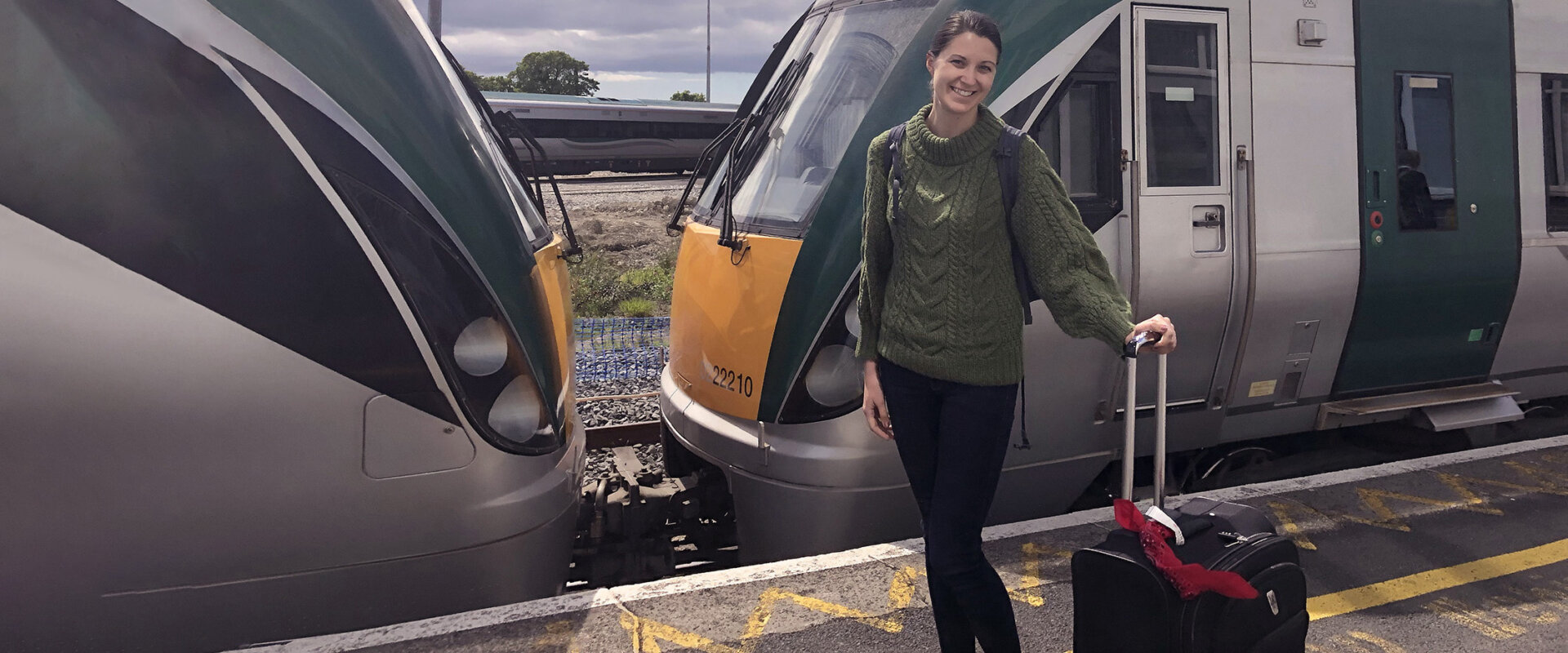Am I still a backpacker if I can’t carry a backpack?
When I was 20 years old, I broke my back while snowboarding in France. It came six months into a backpacking trip across Europe. In those six months, I worked at a hotel in Scotland, explored the Christmas Markets in Germany, volunteered on a farm in Normandy and drank lukewarm beer in Prague. I carried everything I owned in two backpacks. I travelled by myself, but I was rarely alone. I slept in hostel dorm rooms surrounded by anonymous snorers, devoured yellowed pages of wanderlust-fuelling books in coffee shops and kissed boys with accents so thick I rarely understood what they were saying. Life was good.
My plans would change on a whim, as I maxed out the flexibility of my two-year UK working holiday visa. I went to Edinburgh for a week and stayed for a month. Part of the reason was the nomadic community I found just off the Royal Mile. Surrounded by long-stay backpackers, I fell into an easy rhythm of working (or, more often, declining jobs) for a recruitment agency, contributing to family meals in the kitchen and lounging with friends in the bean bag room. I liked staying somewhere more than a few days; I felt like I belonged.
I met plenty of diverse wanderers, including one traveller who pulled a suitcase rather than a typical ratty backpack. He fought the stuffy rectangle up the winding staircase in the hostel. I wondered if he could still be considered a backpacker without a backpack.
My backpack was sky blue. Unlike most women’s gear and clothing, it sported a plethora of pockets—from the flap-style closure to the bottom zippered compartment, quick-stash pockets on the hip belt and a long, U-shaped incision that opened its belly, revealing the main compartment. This 55-litre pack housed my clothes, toiletries, electronic cords and random necessities like tape, Tupperware and scissors—things I’d learned I might need on the road. I rolled and stuffed everything into my mobile home and heaved it onto my back, moving clunkily through cities, tackling backroads, running after buses and trudging up stairs.
I believed “backpacks” were integral to the “backpacking” experience.
Across my stomach, I carried another “day pack,” though it often weighed as much as my larger backpack. It was steel blue and grey, with a proud red maple leaf sticker slicked on the front. I pinned a silver bird above it, an heirloom from my grandmother. Together, my life’s belongings added about 18 kilograms onto my 64-kilogram frame.
I liked being able to carry everything I owned on my back, but it could be painful and difficult. Sometimes, I envied travellers who pulled their lives on wheels. But around the hostel crowd, I turned my nose up at “luxury travellers” with suitcases. Untethered to the ground, I could follow narrow dirt paths through fields on Orkney Island and jump onto a train before the doors snapped shut in Lyon. I felt proud of my backpacker identity and grew stronger with every footstep. I let my hair grow long and collected hemp bracelets on my wrists. Toting a perfectly packed suitcase didn’t fit the image of hostel-goers I encountered on the road. I believed “backpacks” were integral to the “backpacking” experience.

I left Edinburgh to spend Christmas with my extended family in Copenhagen before flying to the French Alps. I’d secured a job as a waitress at a French restaurant in Alpe d’Huez. I snowboarded all day, served cheese fondue in the evening and danced with other seasonal workers at nightclubs in the small resort town until 3 a.m.
On my six-month mark after leaving home, I grabbed my snowboard and headed to the board park. Carving down the hill, I left a shiny trail, like skate marks on an ice rink. My adrenaline spiked as I turned towards a small jump, rode over the lip and launched myself into the air.
For a few brief, beautiful seconds, I flew.
Then I fell.
It took me a second to realize I was screaming. I couldn’t move my torso. I wiggled my toes, desperate to discover they still worked, reassured in a panic to feel my socked feet scrape the inside of my snowboard boots. Paramedics arrived and hoisted me onto a red plastic stretcher. An ambulance transported me to Grenoble Hospital, where I underwent spinal surgery. Before I went under, the anesthesiologist warned me, “you might be paralyzed.”
The surgeon placed two strips of titanium and four metal screws along my broken spine to align it while I healed. When I woke up, I tried to move my legs. Tears slid down my cheeks as my feet flexed beneath white hospital sheets.
I was incredibly lucky. It could’ve been so much worse. There was another skier in the hospital with the exact same injury—an L1 fracture—who was paralyzed. I maintained full control of my legs, bending my knees and caressing my tender skin like the miracle it was.
Still, I struggled to accept my injury. My back felt like it was made of splintered wood; my muscles were reduced to the pudding cups the hospital served as dessert. Titanium supported my fractured backbone, but it also bit into my muscles, rendering them useless. I couldn’t bend at the waist to wash my face or lean over a table while eating. My back was hypersensitive, covered in angry red stitches that would become scars.

The physiotherapist at the hospital coaxed me out of bed, teaching me how to sit up, stand and walk slowly down the halls. I tugged an IV drip alongside me, each tiny step a tortuous climb. I yearned for the girl who’d carried everything she owned on her back, chasing down buses and jumping on trains.
One of my greatest fears was losing my identity as a traveller—and more specifically, a backpacker. I was afraid I would be too weak to support such heavy luggage with my damaged body. I worked up the courage to ask the physiotherapist if she thought I’d be able to carry a backpack again. "Unlikely," she said. “And a pack like that?” She gestured toward my big blue backpack. “Never.”
I twisted my neck to gaze at my home away from home. I’d tossed that backpack into the underbellies of buses, hauling it to the luggage compartment myself when drivers complained it was too heavy. I unpacked it in hostel dorm rooms while meeting new friends, sparking conversations and spontaneous adventures. I donated my summer clothes and repacked it with winter necessities, prepared to continue travelling long-term. That backpack had grown to be a part of me. I wasn’t ready to have it severed.
But I didn’t have a choice. Two weeks after surgery, I was forced to return home to Canada—this time, in a stretcher. I saw the backdoors of airports and was hoisted by hydraulic lifts into airplanes. Passengers stared when I pushed and pulled my way into a seat, the excruciatingly uncomfortable 90-degree-angle stealing my breath until I could recline.
Time had helped me accept my new reality, and my earnest pursuit of travel writing boosted my confidence.
Back home in Grande Prairie, Alberta, I began the slow, painful journey of healing in my hometown. I spent anxious days at doctors’ appointments and restless nights on a rented hospital bed in my living room. I turned 21 and went out to a bar to drink my friends. Beneath the injury, I was still me: ambitious, curious, hungry to travel. After five months of physiotherapy and hopeful planning, I felt good enough to return to the UK with a friend. I still had a work visa, and I wanted to prove I was still a backpacker—this time, without a backpack.
When we arrived at the hostel in Edinburgh that had been my second home, I was nervous. I blushed as my friend carried my wheelie bag up the winding staircase. I reunited with some of the long-stay backpackers I’d met half a year ago, but it felt like a different life. Perhaps I blamed some of our differences on my luggage, but in hindsight, I suspect it mattered less about my lack of a backpack and more about my loss of innocence.
I couldn’t travel like I did before, so I returned home to Canada a few weeks later, disappointed and uncertain. That fall, I began studying creative writing at Okanagan College in Kelowna, British Columbia.

After my first year of college, I booked a trip back to Europe for a month-long travel writing course in Berlin. For years, my travel blog had hosted my backpacking stories, even if only my mom read my posts. I decided to pursue my aspirations of becoming a paid travel writer. Before the program started, I spent three weeks backpacking through Eastern Europe from Bratislava, Slovakia, to Athens, Greece—without a backpack.
The cobblestone streets were like speed bumps, and I felt questioning eyes ransack my rolling luggage in hostel lobbies. But time had helped me accept my new reality, and my earnest pursuit of travel writing boosted my confidence. I was slowly learning not to view myself as damaged goods. Being broken made me stronger. I decided I wouldn’t exclude myself from hostel life because of my injury.
There are many reasons why someone might not carry a backpack. Perhaps it’s a physical limitation, like mine. Some people may prefer the style, security and organizational compartments of wheeled luggage. Wheels offer some relief on long journeys, especially while waiting in slow lineups or trudging through expansive airports.
When I was looking down my nose at travellers who carried suitcases instead of backpacks, I really should have been inviting everyone into the hosteling community. I should have realized what gets you there is significantly less important than getting there at all.
After I returned home from Europe, I endured a second spinal surgery. I can carry a small backpack now, but my massive sky-blue bag is still collecting dust. When I place too much weight on my back—which is mainly scar tissue from two invasive surgeries—it can leave me in bed for hours.
I know I’ll likely deal with back pain for the rest of my life. Despite the aches and annoyances, I feel lucky to walk, travel and explore the world. After many trips with a dorky wheelie bag, I finally feel confident in my identity as a backpacker without a backpack.
Issue 5



